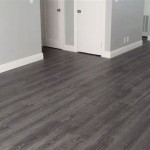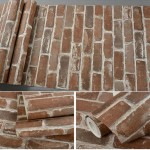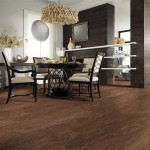Acrylic Resin Flooring: A Comprehensive Overview
Acrylic resin flooring represents a versatile and increasingly popular solution for a wide range of environments, from industrial facilities and commercial spaces to residential applications. This flooring system, characterized by its rapid curing times, durability, and aesthetic flexibility, offers a compelling alternative to traditional flooring options like epoxy, concrete, and tile. The composition, application, and properties of acrylic resin flooring make it a valuable consideration for projects requiring performance and visual appeal.
Acrylic resin flooring is typically composed of a liquid acrylic resin, which serves as the binder, and a hardener or catalyst. This two-part system, when mixed, initiates a chemical reaction that leads to the rapid polymerization and hardening of the material. The cured resin forms a seamless and durable surface. Various additives, such as pigments, fillers, and aggregates, are incorporated into the mixture to tailor the flooring's color, texture, and performance characteristics, enhancing its specific application suitability.
The term "acrylic resin flooring" encompasses a variety of formulations. Methyl methacrylate (MMA) resins are a common type, known for their exceptional cure speed, even at low temperatures. Other acrylic-based systems may incorporate urethane modifications or other polymers to achieve specific properties, such as increased flexibility or chemical resistance. The selection of the appropriate resin type depends on the project's particular requirements and the expected environmental conditions.
Key Benefits of Acrylic Resin Flooring
Acrylic resin flooring provides several advantages that make it a preferred choice in various scenarios. These benefits extend beyond mere aesthetics, impacting the overall performance and longevity of the flooring system.
One significant advantage is its rapid curing time. MMA-based systems, in particular, can cure within hours, minimizing downtime and disruption during installation. This fast curing allows for quick turnaround times in renovation projects or new construction, enabling businesses to resume operations sooner. This is particularly valuable in industries where operational downtime translates directly into financial losses.
Durability is another key benefit of acrylic resin flooring. The cured resin forms a hard, impact-resistant surface that can withstand heavy foot traffic, vehicular traffic, and various forms of mechanical stress. This durability contributes to a long service life, reducing the need for frequent repairs or replacements. Properly installed and maintained acrylic resin flooring can provide years of reliable performance, making it a cost-effective solution in the long run.
Finally, acrylic resin flooring offers excellent chemical resistance. It can withstand exposure to a wide range of chemicals, including acids, alkalis, solvents, and oils. This resistance makes it suitable for environments where chemical spills or exposure are common, such as laboratories, manufacturing plants, and food processing facilities. The chemical resistance of acrylic resin flooring helps to protect the underlying substrate from damage and degradation, further extending the flooring's lifespan.
Application Process for Acrylic Resin Flooring
The successful installation of acrylic resin flooring relies on a meticulous application process. Proper surface preparation, mixing techniques, and application methods are crucial to achieving a durable and aesthetically pleasing result.
The initial step involves thorough surface preparation. The existing substrate, whether concrete, wood, or tile, must be clean, dry, and free of any contaminants such as oil, grease, or dust. Any existing coatings or sealants should be removed to ensure proper adhesion of the acrylic resin. Cracks, holes, or other surface imperfections should be repaired and leveled. The surface may be prepared using mechanical methods such as grinding, shot blasting, or scarifying to create a profile that promotes strong bonding.
Next, the acrylic resin and hardener are carefully mixed according to the manufacturer's instructions. Accurate measuring and thorough mixing are essential to ensure proper curing and optimal performance. Pigments or other additives are typically incorporated during this stage to achieve the desired color and aesthetic effects. The mixing process should be performed using appropriate equipment to ensure a homogeneous mixture.
The mixed resin is then applied to the prepared surface using a variety of methods, depending on the desired thickness and texture. These methods include pouring, troweling, squeegeeing, or spraying. The application process should be performed by trained professionals to ensure uniform coverage and a smooth, level surface. Multiple coats may be applied to achieve the desired thickness and performance characteristics. Between coats, it is important to allow the previous coat to cure properly before applying the next one.
Following the application, the flooring is allowed to cure completely. The curing time will vary depending on the specific resin formulation and the ambient temperature. During the curing process, it is important to protect the flooring from foot traffic, dust, and other contaminants. Once the flooring has fully cured, it can be sealed or coated with a protective finish to enhance its durability and appearance. A final inspection is then performed to ensure that the flooring meets the required standards for quality and performance.
Factors Influencing the Choice of Acrylic Resin Flooring
Several factors must be considered when determining whether acrylic resin flooring is the appropriate solution for a specific project. These factors relate to the environment, usage, and required performance characteristics of the flooring.
The intended use of the space is a primary consideration. For industrial environments with heavy machinery and frequent chemical spills, a highly durable and chemically resistant acrylic resin system is necessary. Conversely, for residential applications where aesthetics are paramount, a more decorative acrylic resin system with a wider range of color and texture options may be preferred. The expected foot traffic, vehicular traffic, and potential for impact damage should all be taken into account.
The prevailing environmental conditions also play a significant role in the selection process. Temperature fluctuations, humidity levels, and exposure to UV radiation can all affect the performance of acrylic resin flooring. For example, MMA-based systems are particularly well-suited for low-temperature environments due to their rapid curing times, even in cold conditions. If the flooring will be exposed to direct sunlight, a UV-resistant resin should be chosen to prevent fading or discoloration.
Budgetary constraints are inevitably a factor in any flooring decision. While acrylic resin flooring may have a higher initial cost compared to some other options, its long-term durability and reduced maintenance requirements can make it a cost-effective solution over the lifespan of the flooring. It is essential to consider the total cost of ownership, including installation, maintenance, and potential repairs, when comparing different flooring options. Seeking quotes from multiple reputable flooring contractors can help to ascertain the cost-effectiveness of acrylic resin flooring for a specific project.
In summary, acrylic resin flooring presents a compelling combination of performance characteristics and aesthetic versatility. Its rapid curing times, durability, chemical resistance and customizable appearance make it a worthy consideration for a plethora of applications. A diligent consideration of the factors mentioned above will facilitate an informed decision-making process when selecting flooring solutions.

Resin Flooring Spectra Contract

Acrylic Resin Floor Flooring

Resin Floor Technologies Ncc Flooring Site

Acrylic Resin Floor Flooring

3 Types Of Resin Flooring Explained Floortech

Maine Flooring Professional Contractors Installation For Garages Commercial Spaces New England Concrete Polishing

Acrylic Resin Flooring Metallic Floor Best Garage Coating 2024 China Made In Com

Is Flooring Safe For My Home Colorado

How To Do Floors Step By Guide S3e3

Garage Flooring Cost And Installation Guide Xps
Related Posts








